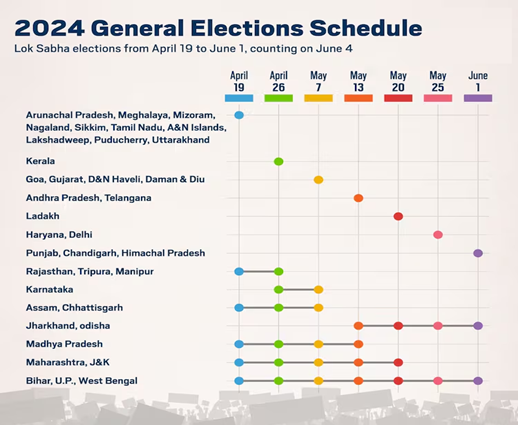PREVIOUS
Model Code of Conduct 2024
March 19 , 2024
254 days
431
0
- The Election Commission of India (ECI) announced on March 16 that the Model Code of Conduct (MCC) comes into effect.
- The country would vote in seven phases in the Lok Sabha elections, from April 19 to June 1 and the results will be announced on June 4.
- The Model Code of Conduct is a set of guidelines issued by the Election Commission to regulate the campaigning of political parties and the candidates during elections.
- Its main aim is to conduct free and fair elections by preventing any activities that could influence voters or disrupt the poll process.
- The Model Code of Conduct was first used during the 1960 Assembly elections in Kerala.
- Following its success, the Election Commission introduced it nationwide during the 1962 Lok Sabha elections.
- During the 1991 Lok Sabha elections, the poll panel decided to enforce the MCC more strictly due to repeated violations of election norms and concerns over corrupt practices.
- MCC has no statutory backing.
- Simply put, this means anybody breaching the MCC can’t be proceeded against under any clause of the Code.
- The EC uses moral sanction or censure for its enforcement.

Leave a Reply
Your Comment is awaiting moderation.


